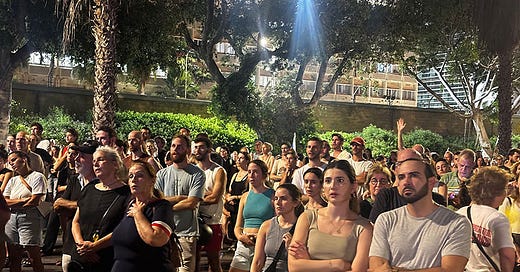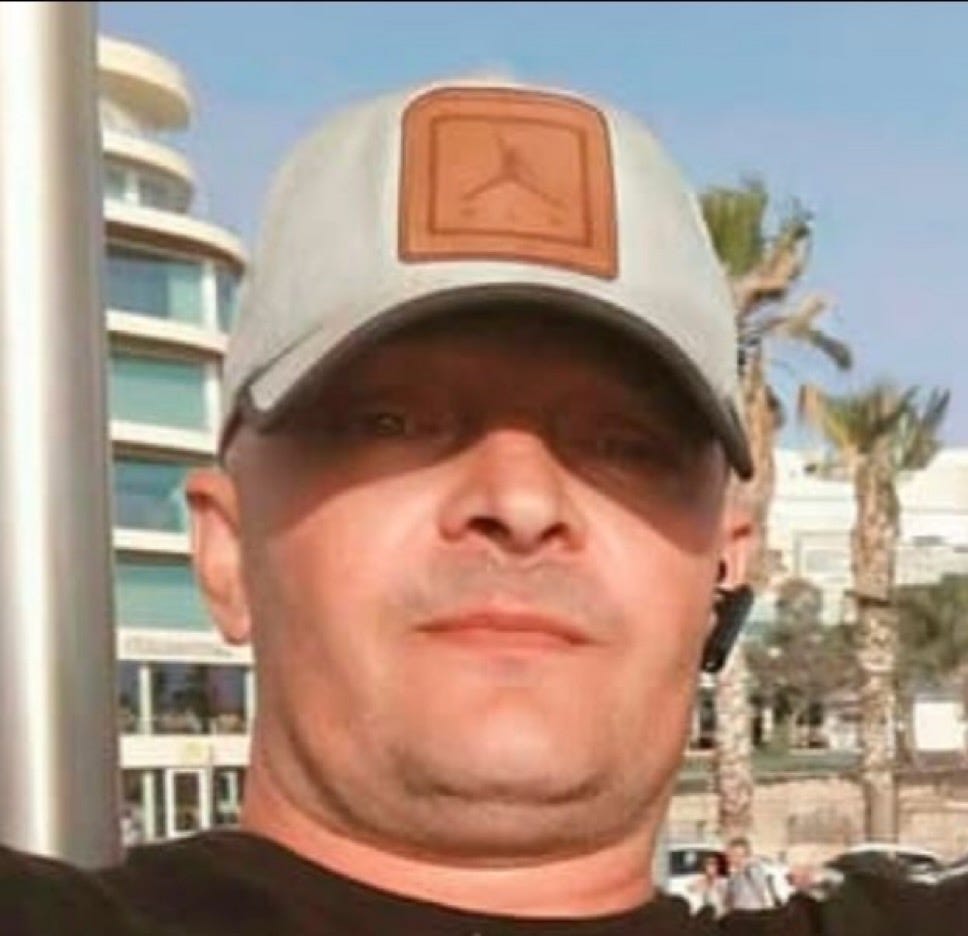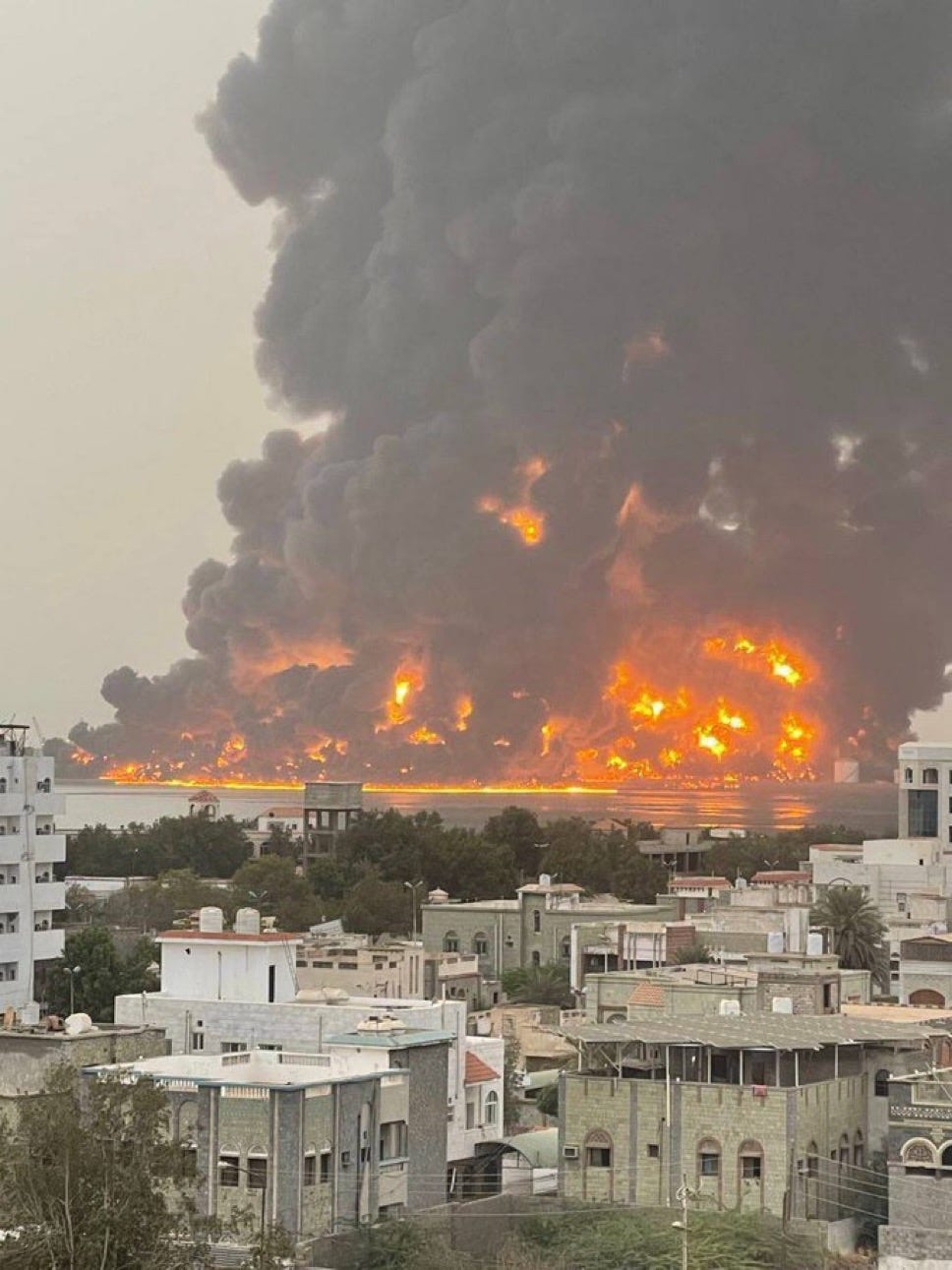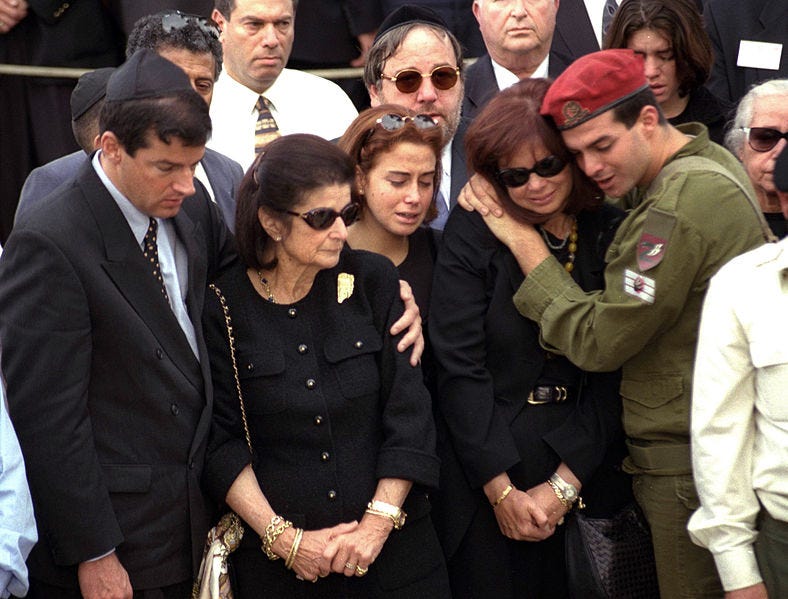DAY 288 OF THE WAR: Houthi Drone Strikes Tel Aviv, Israel Attacks Strategic Targets in Yemen, ICJ Calls Israeli Occupation of West Bank Illegal
Tel Aviv Diary, July 20, 2024
Zoom Briefing: Sunday, June 21, 6PM Israel Time, 11 AM EDT, 8 AM PDT. Invitations in the morning.
Friday proved to be another difficult day in Israel. I had woken up at 3 AM to head to i24News Hebrew broadcast, where I was scheduled to participate in a panel during ex-President Trump’s nomination acceptance speech. Just as I was about to leave my apartment, I heard an exceptionally loud noise outside. I assured my wife it was probably just a very large truck or something similar and headed to the studio again in the middle of the night. Since it was Thursday night, the streets were not completely deserted, as people were still out enjoying the evening.
I reached the studio around 3:30 and was among the first to arrive. As others began to stream into the studio, it became clear that no one knew what had caused the noise earlier. The first notifications from the police began arriving, and as soon as enough crew members were present, they went on the air to report about the developing incident. At first, it was still unclear what had happened, although there was immediate speculation about the incursion of a drone.
Clarity only came a few minutes later when one of the station’s employees, who had been nearby at the beach with her significant other, described hearing a drone's buzz in the seconds before the explosion— which confirmed that the strike was a drone attack. When the head of the Tel Aviv police district arrived at the scene, he reported initial confusion among the police officers. Although it was evident an explosion had occurred, they were unable to determine its source or location. Eight people were evacuated from the scene.
My immediate concern was that the yet-to-be-identified projectile was a Hezbollah drone. If so, it could drag us into a major conflict with Hezbollah for which we were unprepared. As strange as it sounds, it was good news when the Houthis issued a statement a few minutes later, announcing their intention to mount a major strike against Israel. Houthis soon took responsibility for the attack. Shortly after, the Army confirmed that the previously unidentified aerial device was indeed a Houthi drone.
The IDF stated that it was human error that allowed the drone to enter Israeli airspace and explode in the center of Tel Aviv. Apparently, the drone had been detected by Israeli radar but was not classified as a threat. Therefore, nothing was done to intercept it. Tragically, the attack not only caused damage to the area and struck a blow to an already fragile national morale, but the blast also claimed the life of Yevgeny Ferder, 50, who reportedly worked at Momo’s Hostel near the site of the explosion.
The deadly drone was one of four sent by the Houthis in their latest drone barrage; the other three were intercepted by the US over the Red Sea. Until yesterday, the Houthis had fired over 200 drones and ballistic missiles at Israel.
At the same time the undetected drone hit Tel Aviv, the Israeli Air Force intercepted another drone over Jordan, originating from Iraq.
Until now, Israel had not retaliated against the numerous Houthi attacks, instead deferring to the Americans and their allies. However, at 6 PM tonight, Israel initiated a large-scale air strike on Yemen. Unlike the American attacks, which targeted only specific missile and drone sites, Israel's operation aimed at more strategic targets, including oil tanks and ammunition storage facilities. It was a significant attack. Reports indicate that the attack also targeted the port of Hodeidah, as well as other vital facilities and power plants.
Israel’s retaliatory attack conveys a number of messages. Primarily, it is a strategic strike against the Houthis, but it also serves as a warning to Iran, highlighting that the flight to Yemen is longer than the flight to Iran. All of our neighbors were observing our response to the attack. I am confident that this plan had been developed well in advance, awaiting the appropriate moment to be put into action.
Once the Houthis attacked Tel Aviv, there was no choice but to respond and ensure the response was significant. A large armada of planes headed to Yemen this afternoon, which included attack planes, fighter planes, electronic warfare planes, and refueling planes. The principal attack planes were Israel’s F-15s, which first went into service when I was in the Air Force (in the mid-1970s). The F-15 is still the plane that can carry the highest payload. (note: Israel has just ordered the newest version of the F-15, but it will be a few years until they are delivered). Israel independently launched this attack on the Houthis. However, there is no doubt that there was operational cooperation with both the United States and, most likely, Saudi Arabia.
This afternoon, the National Security Cabinet held an emergency meeting. Ministers were given 45 minutes’ notice, and according to reports, the religious ministers also attended to participate in the meeting required to approve the attack formally.
This evening, Defense Minister Yoav Gallant stated:
I have just left the Air Force command center, where I was with the Prime Minister, the Chief of Staff, and the Air Force commander, monitoring the air strike by Air Force planes at the Hodeidah port, 2,000 kilometers from Israel.
The fire burning now in Hodeidah can be seen across the entire Middle East, and this has clear implications. The Houthis have attacked us more than 200 times – the first time they harmed an Israeli citizen, we prepared them, and we will do this wherever it is required.
The blood of Israeli citizens has a price; it is not cheap. Today, they know this in Lebanon, Gaza, Yemen, and other places. If they dare to attack us, the result will be the same.
The Houthis have vowed to retaliate, prompting the IAF to remain on high alert for a potential attack in the coming days. The question now is what our next steps will be. The Egyptians have been most affected by the Houthi actions, having lost half their Suez Canal income as a result of the Houthi attacks on shipping.
THE NORTH
After a series of successful Israeli strikes on Hezbollah members on Thursday evening, Friday saw a string of successive retaliatory Hezbollah rocket barrages on the North. On Saturday, Israel successfully eliminated another key Hezbollah leader in South Lebanon. Later Saturday afternoon, Hezbollah fired two barrages totaling 45 rockets at targets along the border area and into the Golan Heights. Hezbollah took responsibility for some of the barrages, but Hamas in Lebanon claimed responsibility for a barrage on the Western Galilee. Tonight, an attack drone landed in the Northern Golan Heights. Two soldiers were wounded, one seriously and one lightly.
HOSTAGES
The status of the hostage deal remains uncertain. Secretary of State Blinken noted at the Aspen Security Conference that an agreement is close, likening it to being within the 10-yard line. In Israel, there is concern that Netanyahu is delaying the agreement by continually placing additional hurdles before the negotiating team. Netanyahu is set to fly to the U.S. tomorrow, and the families of the hostages are urging him to finalize the hostage plan he initially presented before he departs for the United States. However, that obviously will not be the case. There is hope that American pressure during his visit will help resolve the open issues standing in the way of securing an agreement.
GAZA
Israel has continued to attack specific targets in Gaza. The IDF Spokesman released the following statement regarding combat today in Gaza:
As part of the joint attack by the IDF and Shin Bet yesterday (Thursday), in which a fighter jet struck terrorists in an UNRWA compound in the Zeitoun area, which served as the headquarters of Hamas' Gaza City Brigade, the terrorist Adel Hamdiya, the military intelligence officer of Hamas' Gaza City Brigade, was eliminated.
Hamdiya has been in his role since 2019, responsible for operating the collection and building of the brigade's intelligence picture leading up to the deadly massacre on October 7. During the war, he was responsible for directing offensive activities against our forces and forming the intelligence picture regarding maneuvering forces.
Additionally, as part of his role, Hamdiya was responsible for intelligence collection and situation assessments for senior officials of the Gaza Brigade and senior members of the military wing of the Hamas terrorist organization. His department was responsible for promoting operational plans against our maneuvering forces and against the southern communities.
The Hamas terrorist organization systematically violates international law, ruthlessly exploiting civilian institutions and the population as human shields for terrorist activities.
Several cases of Polio have been identified in Gaza. The fear is the illness originated from international aid workers. Israel is now contemplating vaccinating all soldiers deployed to Gaza.
ICJ
The International Court of Justice issued an opinion on Friday stating that the “Israeli occupation of Palestinian territories is ‘unlawful’ and must end.” The court declared that Israel must “evacuate all settlements, dismantle the walls, and return all those who were displaced as a result of the occupation to their homes.” Additionally, the ICJ stated that “Israel must make reparations for damages caused by the West Bank occupation.”
The issue with the report from a court presided over by a Lebanese president is that it is biased and lacks historical context. The most compelling response to the ICJ report is the dissenting opinion written by Court Vice-President Sebutinde. I recommend reading her entire response. As she meticulously reviews the history of the Israeli-Palestine conflict, underscoring the numerous occasions on which the Palestinians could have established a state. Vice-President Sebutinde references the Peel Report, the Partition Plan, and various other instances all the way through to the Olmert plan, highlighting where the Palestinians rejected every proposal.
Court VP Sebutinde then goes on to state:
The Advisory Opinion clearly circumvents and is likely to jeopardize the existing internationally sanctioned and legally binding negotiation framework for the resolution of the Israeli-Palestine conflict referred to in Part III of this dissenting opinion.
An additional significant point raised by VP Sebutinde:
Another reason for declining to give the Advisory Opinion is to avoid adjudicating what is essentially a bilateral dispute between Israel and the Palestinian people in the absence of comprehensive arguments from one of the parties.
One of Court VP Sebutinde’s most crucial observations is that.
Another significant factor which the Court has overlooked, and which distinguishes the Israel-Palestine conflict from other international situations involving calls for an “immediate, total and unconditional end” of colonization or occupation or expired legal mandate, is the existential and security threats posed to the Jewish people and State of Israel, from the disputed territories and from its adversaries in the neighborhood and beyond. It is undeniable that there are States and non-State actors who have openly expressed a desire to see the State of Israel, not just withdraw from the OPTs but also wiped off the face of the earth, including from its own territory.
Time and time again, Israel’s adversaries have launched surprise attacks on Israel within her borders and not just in retaliation for her occupation of Palestinian territory. Indeed, many of the wars between Israel and her Arab neighbors have been fought by Israel preemptively to remove an immediate and existential military threat originating from either the OPTs or from enemies further afield. Examples include the 1967 war, the Six-Day War, and more recently, the ongoing Gaza war. As pointed out earlier in this opinion, the Security Council has hitherto taken cognizance of Israel’s legitimate security concerns and called for a withdrawal that occurs concurrently with effective security guarantees, as reflected in its resolutions 242 (1967) and 338 (1973) and others.
Here’s the link to Judge Sebutinde’s complete dissent:
https://www.icj-cij.org/sites/default/files/case-related/186/186-20240719-adv-01-02-en.pdf
While I disagree with much of the report, it is important to acknowledge that the legality of Israeli settlements under international law remains highly questionable, even for those who are biased in favor of Israel.
∞–––––∞–––––∞–––––∞–––––∞–––––∞–––––∞–––––∞–––––∞–––––∞
A PIECE OF HISTORY
Israel Mourns Rabin
The announcement of Prime Minister Yitzhak Rabin’s death on that tragic night of November 4, 1995, sent the nation into a state of shock. Thousands gathered in what would soon be renamed “Rabin Square” to light candles, mourn, and cry. It seemed inconceivable that the man who had stood before them just hours earlier, singing “Shir L’Shalom” (literally, a Song for Peace) in his characteristically off-key voice, had been assassinated by a fellow Jew.
President Clinton reflected on his reaction when he heard the devastating news:
In the 2 1/2 years we had worked together, Rabin and I had developed an unusually close relationship, marked by candor, trust, and an extraordinary understanding of each others political positions and thought processes. We had become friends in the unique way people do when they’re in a struggle that they believe is great and good. With every encounter, I came to respect and care for him more. By the time he was killed, I had come to love him as I had rarely loved another man. In the back of my mind, I suppose I always knew he had put his life at risk, but I couldn’t imagine him gone, I didn’t know what I would do or could do in the Middle East without him. Overcome with grief, I went back upstairs to be with Hilary for a couple of hours.
Then, Clinton delivered a brief statement in the Rose Garden, concluding with the words “Shalom Chaver” (farewell, friend)— a heartfelt message that quickly resonated across Israel.
Despite the shock and grief, the Israeli government, now led by deputy Prime Minister Shimon Peres who automatically assumed the role of acting Prime Minister, had to arrange a massive national funeral. Rabin’s body was transported to Jerusalem, with thousands lining the roads to pay their final respects. In Jerusalem, Rabin’s coffin was laid in state at the Knesset. By Sunday night, over 1 million Israelis had visited to pay their respects to the slain leader.
Additionally, 2,000 foreign dignitaries arrived from nearly 80 countries. The U.S. delegation alone included President Clinton, former Presidents Carter and Bush, The Secretary of State along with his two predecessors, the Secretary of Defense, the Chairman of the Joint Chiefs of Staff, as well as Congressional leaders. The President and Chancellor of Germany, the President of France, and the Prime Minister of Italy were among other notable attendees. The only significant figure absent was Yasser Arafat, who was asked not to attend due to security concerns.
There were several memorable speeches at the funeral. However, the eulogy that left no dry eyes was delivered by Rabin’s granddaughter, Noa Ben Artzi.
You will forgive me, for I do not want to talk about peace. I want to talk about my grandfather. One always wakes up from a nightmare. But since yesterday, I have only awakened to a nightmare — the nightmare of life without you, and this I cannot bear. The television does not stop showing your picture; you are so alive and tangible that I can almost touch you, but it is only "almost" because already I cannot.
Grandfather, you were the pillar of fire before the camp, and now we are left as only the camp, alone in the dark, and it is so cold and sad for us. I know we are talking in terms of a national tragedy, but how can you try to comfort an entire people or include it in your personal pain when grandmother does not stop crying, and we are mute, feeling the enormous void that is left only by your absence?
Few truly knew you. They can still talk alot about you, but I feel that they know nothing about the depth of the pain, the disaster and, yes, this holocaust, for -- at least for us, the family and the friends, who are left only as the camp, without you -- our pillar of fire.
Grandfather, you were, and still are our, hero. I want you to know that in all I have ever done, I have always seen you before my eyes. Your esteem and love accompanied us in every step and on every path, and we lived in the light of your values. You never abandoned us, and now they have abandoned you -- you, my eternal hero -- cold and lonely, and I can do nothing to save you, you who are so wonderful.
People greater than I have already eulogized you, but none of them was fortunate like myself [to feel] the caress of your warm, soft hands and the warm embrace that was just for us, or your half-smiles which will always say so much, the same smile that is no more, and froze with you. I have no feelings of revenge because my pain and loss are so big, too big. The ground has slipped away from under our feet, and we are trying, somehow, to sit in this empty space that has been left behind in the meantime without any particular success. I am incapable of finishing, but it appears that a strange hand, a miserable person, has already finished for me. Having no choice, I part from you, a hero, and ask that you rest in peace, that you think about us and miss us because we here -- down below -- love you so much. To the angels of heaven that are accompanying you now, I ask that they watch over you, that they guard you well, because you deserve such a guard. We will love you, grandfather, always
.









Thank you again. I appreciate everything you write, but also specifically explaining the dissenting report. Also, your experience personally a Friday morning 3 AM
Great reporting Marc! Israel’s strike on the Houthi certainly ratchets it up a notch. Better than death by a thousand cuts as it is getting from Hezbollah.